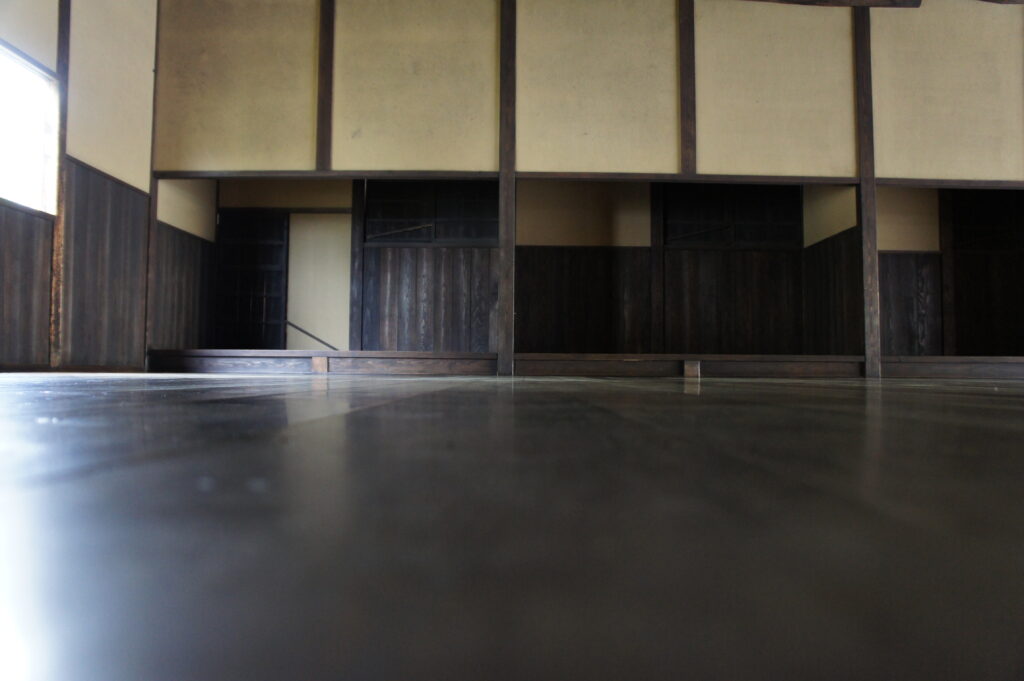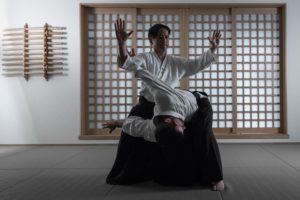About “Rei” (2)
(*The Japanese term “Rei” is translated variously English words such as etiquette, manners, courtesy, decorum, respect, propriety or bowing as a manner.)
Last time, I touched on the word of my teacher that “Rei is to protect our life.”
In Budo practice, Rei can also be said to be “to control ourselves”. The greatest enemy to us is not outside, but rather inside. It’s about our own weak heart. We exercise Rei (bowing) when we enter the dojo and practice, but at the same time we draw a line from the emotions and distractions in ourselves. It means entering the sacred and inviolable area both physically and mentally by Rei. Practice without Rei becomes just exercise and fighting.
Just like the techniques, the basic form (kata) of Rei must be thoroughly repeated and learned at first. But it’s meaningless to stay only in form. It is necessary to put our heart and spirit into it. By accumulating these practices every day, they can be applied and changed according to the situation, and can be used in real life outside the dojo. If we will be able to master Rei that the mind and body synchronizes through practice, there will naturally be no waste in behavior and movements. It will lead to dignity and beauty.
Rei is an expression of consideration, respect and gratitude toward the outside. For example, if the words “Onegai shimasu” and “Arigato gozaimashita” can be synchronized with movements and mind, and if we can synchronize Rei itself ultimately , we will be able to transcend hostility and confrontation that may arise between the opponent and us. That means that there will be no enemies both inside and outside. In that sense, it can be said that Rei is the ultimate in Budo.
“Starting with Rei and ending with Rei” is necessary attitude not only in the dojo and during practice, but also in everyday life from the time we get up in the morning to the time we go to bed at night. This is also the teaching of my teacher. We have to aim for that.
Hideto Usuyama
Vice Headquarters Director and Setagaya Branch Chief
Daito-ryu Aikijujutsu


